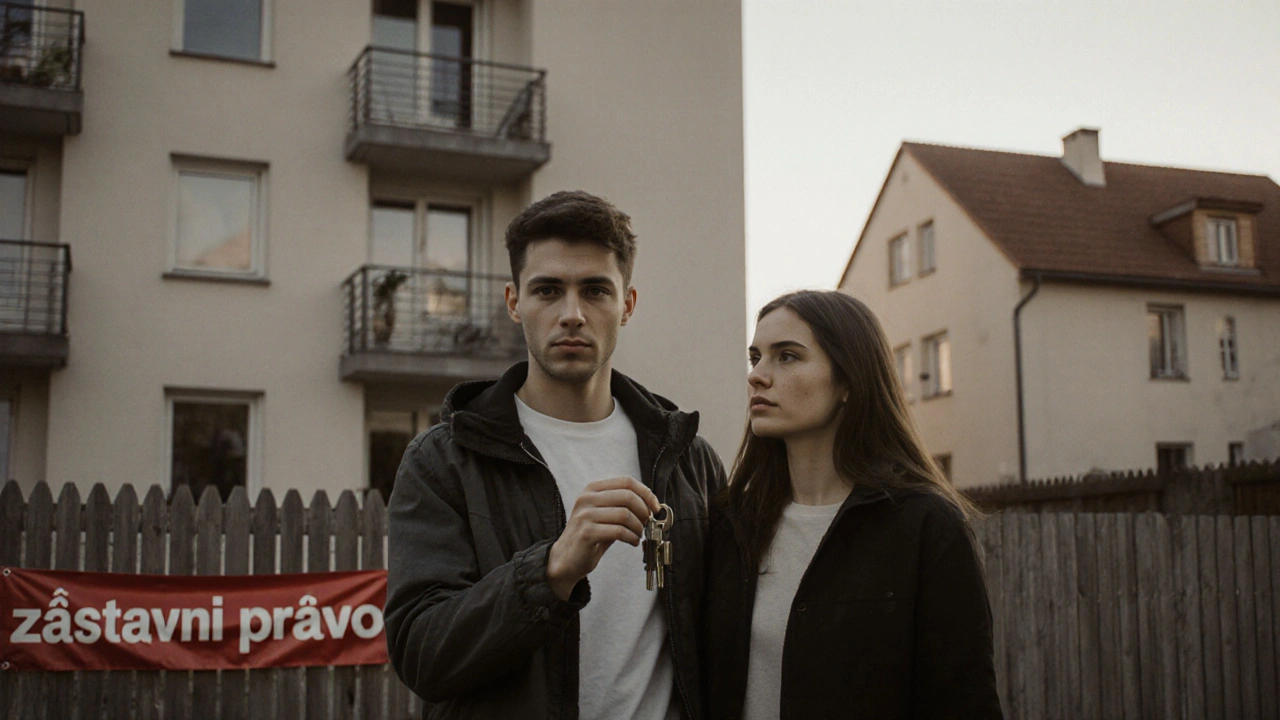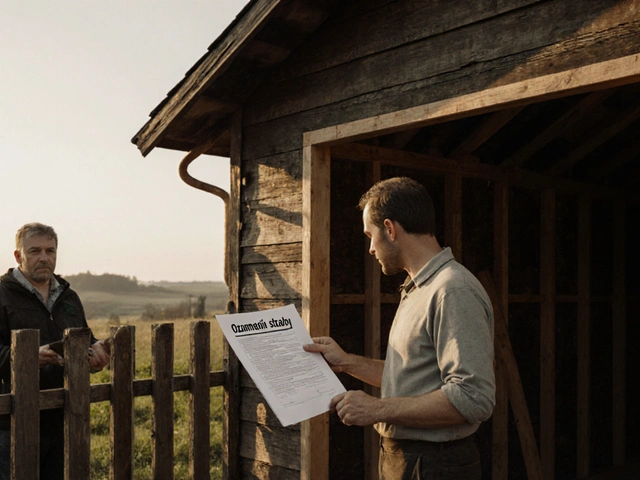Zástavní právo: Co to je a jak ovlivňuje vlastnictví nemovitostí
When you take out a loan secured by your home, you’re not just signing papers—you’re granting a zástavní právo, právní záruka, která umožňuje věřiteli získat nárok na nemovitost v případě nesplacení dluhu. Also known as hypotéka, it is a common tool in real estate financing across the Czech Republic. This isn’t just a formality. It’s a legal tie that binds your property to a debt, and if you don’t pay, the lender can force a sale to recover their money.
Most people think zástavní právo is something banks use only for big loans. But it’s also used in smaller cases—like when you borrow from a private lender or need quick cash for home repairs. The property doesn’t change hands right away. You still live there, pay taxes, and maintain it. But legally, the lender holds a claim on it. If you default, they can go to court and start the process of forced sale. This is why many homeowners panic when they miss a payment—even one. The clock starts ticking the moment you fall behind.
Related to this is the concept of nemovitost, každá pevná nemovitost, jako je dům, byt nebo pozemek, která může být zástavou zabezpečena. Not every property qualifies. The land must be registered in the cadastre, and the building must have a legal status. A garage without a title won’t work. A summer cottage in a village might, if it’s properly documented. Banks and lenders check this carefully before approving any loan.
Another key player is zástava, konkrétní právní akt, kterým se zástavní právo vytváří a zapisuje do katastru nemovitostí. This is the official document that gets filed. Without it, the lender has no real protection. That’s why you can’t just write a note saying “I’ll pay you back with my house.” You need a notary, a land registry entry, and a formal contract. Many people don’t realize how much paperwork is involved—and how permanent it feels once it’s done.
And then there’s the human side. vlastnictví, právo plně rozhodovat o nemovitosti, včetně prodeje, předělávání nebo darování doesn’t disappear when you grant a zástavní právo. But it’s limited. You can’t sell the house without the lender’s approval. You can’t take out another loan on the same property without their consent. And if you try to hide the fact that the house is pledged, you could face legal consequences.
What you’ll find in the posts below isn’t a legal textbook. It’s real stories, real mistakes, and real advice from people who’ve been there. Some thought they could skip the paperwork. Others didn’t realize how fast things can spiral. You’ll see how zástavní právo affects families, how it’s used in renovations, and why some homeowners regret signing without fully understanding the terms. These aren’t abstract concepts—they’re everyday situations with real consequences.
Zástava jiné nemovitosti při hypotéce: Jak funguje a kdy to má smysl
Zástava jiné nemovitosti při hypotéce umožňuje získat vyšší úvěr, když kupovaná nemovitost nestačí jako záruka. Zjistěte, jak funguje, jaké nemovitosti lze použít, kdy se to vyplatí a jak se zástava uvolní.





